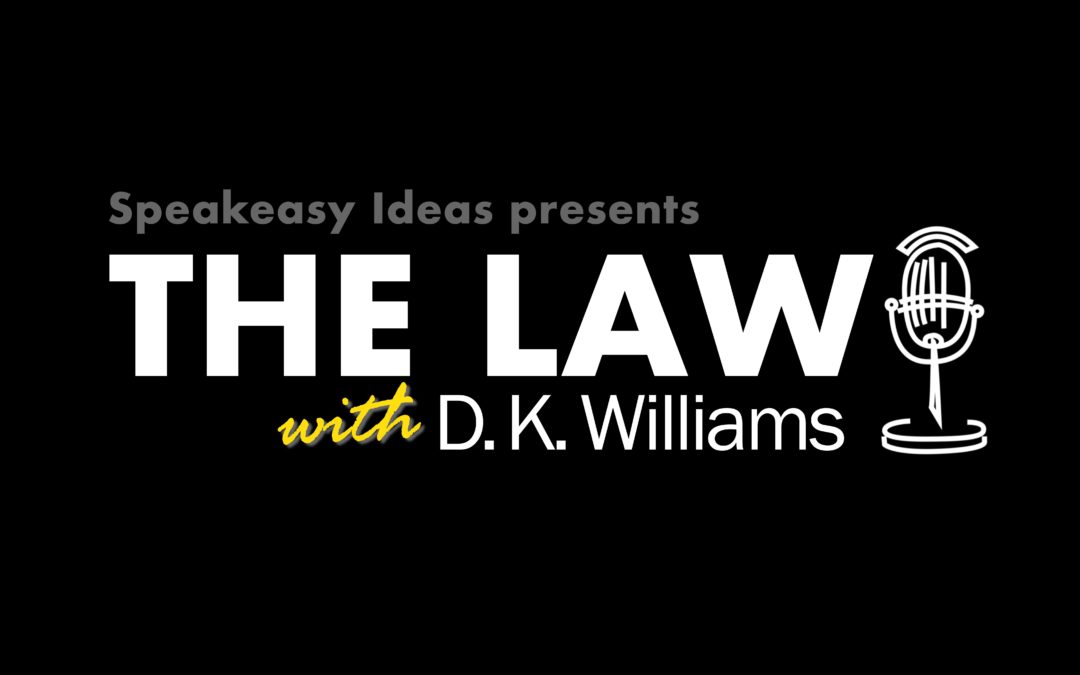
by D.K. Williams | Mar 12, 2020 | The Law with D.K. Williams
Podcast: Play in new window | Download
Subscribe: Apple Podcasts |
In November, 2013, Robert Miller was driving through Wyoming on his way to his home in Illinois. During a traffic stop, a state trooper discovered $470,040 in cash in his car. And took it. Just last week, the Wyoming State Supreme Court ruled unanimously that the State of Wyoming had to return the cash it had taken from Mr. Miller during the stop. Criminal charges were never filed against Mr. Miller, yet the state intended to keep the cash it had confiscated pursuant to the Orwellian Newspeak term “civil asset forfeiture.”

by D.K. Williams | Mar 6, 2020 | The Law with D.K. Williams |
Podcast: Play in new window | Download
Subscribe: Apple Podcasts |
In this 5-4 1989 decision, the U.S. Supreme Court held that burning an American flag was speech the government could not punish pursuant to the First Amendment. Gregory Johnson, a member of the Revolutionary Communist Youth Brigade, participated in an anti-government protest during the 1984 Republican National Convention in Dallas, TX. The protest ended in Mr. Johnson burning an American flag in front of Dallas City Hall. He was arrested and sentenced to one year in jai. The majority of the Court held this conviction was a violation of the First Amendment. The dissent, however, said the flag was such an important symbol, they would make an exception to the Constitution for it.

by D.K. Williams | Feb 27, 2020 | The Law with D.K. Williams
Podcast: Play in new window | Download
Subscribe: Apple Podcasts |
In this unanimous decision, the Supreme Court rejected President Nixon’s contention that all communication involving the Chief Executive of the United States—which just happened to be him—was immune from production in a criminal investigation. The case arose out of the investigation of the Watergate break-in and subsequent coverup. Nixon was ordered to comply with a subpoena to produce recordings of conversations he had made in the Oval Office. Sixteen days after this decision, Nixon resigned.

by D.K. Williams | Feb 20, 2020 | The Law with D.K. Williams
Podcast: Play in new window | Download
Subscribe: Apple Podcasts |
This is the U.S. Supreme Court case that ended the Lochner era of jurisprudence. It is allegedly the “switch in time that saved nine,” a reference to the Court abruptly changing course shortly after FDR announced his court packing plan. Justice Owen Roberts, in a span of a few months, changed his vote from a similar case and allowed the State of Washington, in this case, to implement a minimum wage law for women. It was another step in the direction of the intrusive, bureaucratic, centrally planned regulatory state that now exists.

by D.K. Williams | Feb 13, 2020 | The Law with D.K. Williams |
Podcast: Play in new window | Download
Subscribe: Apple Podcasts |
Just this week, a unanimous D.C. Circuit Court of Appeals threw out a lawsuit filed by over 200 members of Congress alleging Donald Trump is in violation of the Emoluments Clause of the Constitution. The court held the members of Congress did not have standing to bring the lawsuit. So this week, we discuss the Emoluments Clause itself and the concept of judicial “standing.” What does they mean? Check out this week’s edition of The Law for the answer.

